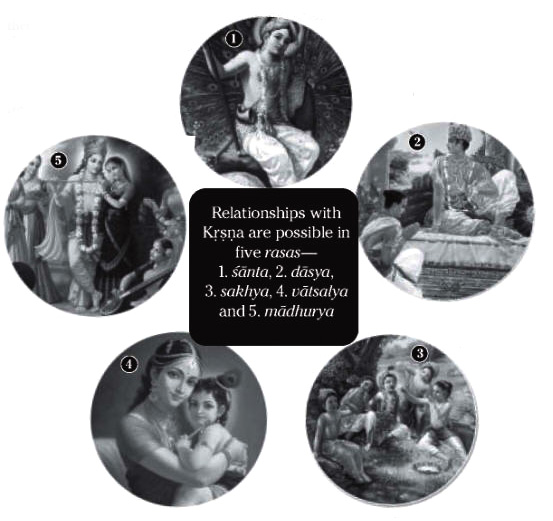The race for supremacy continues even in the virtual world
This is the age of internet.People are spending more and more time online. They are emailing, socializing, chatting, downloading, uploading, sight-seeing, blogging. And of course they are searching. In fact to perform all the previous tasks, one needs the help of a search-engine like Google. Google is so famous today for helping people find something on the internet that it is almost synonymous with a search-engine. Phrases like “google it” meaning “find it” are common. Recently as I was talking to some of my students, I asked them to think of someone who could supply anything and everything. Some indeed mentioned God; most mentioned Google. This got me thinking and I started some research. Indeed, I found The Church of Google on the internet. These people believe that Google is closest to the concept of God and their religion is officially called Googlism. In fact when you want to search for something and after typing it out, when you want to hit the “search” button, instead you find the “pray” button. The connection is obvious. When you want to approach God you pray and so when you approach Google, you should pray. What’s more? They even have nine proofs that justify how Google is God.
Could google be god?

Those of my students who were in favor of Google being God gave some good reasons. They suggested that he is very approachable anyone could approach him for one’s needs. Google is all-knowledgeable information about anything you want is readily available. Using Google Earth, you could check out any place on the planet whenever you want. Google is also impartial anyone, be he rich or poor, gets the same result when he uses Google to find something. I realized these students were getting sophisticated. They said Google knows almost all languages of the world it could translate any page into any language to suit the user. Google is present everywhere on the planet wherever you are you could find him and use him. For Google, nothing is out of reach. If it exists, Google will have access to it. I was awestruck at my students’ line of reasoning. Some neutral bystanders began thinking, “Well! Google very well could be God.”
Not to be outwitted, those in opposition launched their arguments. Google is not a person, they said. He is not independent his existence is dependent on electricity. It can only supply what it is fed with. It cannot independently gather information. Although the button replacing “search” may have “pray” on it, yet Google can’t really listen to our prayers. Google helps us only when asked, not by itself. Google is created; it is not a creator. It doesn’t have any pastimes (pleasurable activities). Google is constantly in a flux always changing. The information that it supplies always keeps on getting updated; God is someone who is stable.
Things didn’t quite settle with this debate. Later, in my office this short confrontation got me thinking more.
Qualities of google
I thought Google is public in nature. Personal details about some person may be readily divulged to any other person without checking the intentions. Privacy is lost in these cases. It is very frustrating to have all kind of private information about yourself being made available on the internet by someone. This kind of free-for-all information can sometimes even be dangerous. We have seen a spurt in the occurrences of e-crimes in the recent years. But with God, all your information and feelings are perfectly safe and secure. God values one’s emotions and doesn’t share them with one and all.
Google is impersonal. There is no real person by that name existing.
Today, people can’t do anything without the help of the internet or Google. Whatever they want to find information about they search the internet for it. The only catch here is that there is no source attached to all this information. I have seen many students searching on the internet for material that they have been asked to research for their assignments. They search, get a few hits, copy all that is available and present it for their assignments. The writer’s name is not mentioned; his credentials are not mentioned. Actually, the internet is glorified for this very reason. Anyone who wants to write about anything is free to do so on the internet no questions asked! Previously, people would research a particular topic for their whole lifetime and then probably come out with a book or so. It would immediately become a classic. Now this is not the case. The Vedas too stress on authority. In fact, more important than the knowledge presented is considered the source of that knowledge. It is easy to understand why.
Sometimes if the source is reliable even incomplete knowledge is considered to be beneficial while detailed knowledge from a non-trustworthy source is discarded. We trust our mothers and sometimes she doesn’t have all information about everything and yet when she advises us we trust her. The right information in the hands of a wrong person has the potential to create unlimited damage. Thus, the Vedas explain that a prospective disciple accepts knowledge only from a bona fide spiritual master. To such a trustworthy person, he surrenders and accepts instructions wholeheartedly.

Google provides us with a lot of information. But is all that we get from it always useful to us? Is there any change in us post-receipt of that information. Real knowledge is explained by the Vedas to be catalytic in producing transformation in our hearts. We could get enamored by all the knowledge that is never out of reach courtesy of Google but we have to ask, what is the value of all this knowledge? Does it help us in discrimination? Does it improve our lives really? Srimad-Bhagavatam (1.1.2) gives an interesting definition of knowledge. It mentions vedyam vastavam atra vastu sivadam meaning “reality distinguished from illusion for the welfare of all.” The first part of this understanding viz. “reality distinguished from illusion” is accepted universally. If something is real knowledge, it has to be true yesterday, today and tomorrow. The second part of the phrase is very interesting. “For the welfare of all” would require real knowledge to be
1. Stable,
2. Factual, and
3. Beneficial.
This is an authentic definition of knowledge.
More and more people are realizing it today that it’s not just sufficient to possess knowledge. What matters is what effect it has on the world? Previously when scientists were asked questions about moral responsibilities, they used to shirk it off and point to the religionists for such discussions. They would be concerned only with their research and their inventions. However, today the situation has changed. With nuclear research, genetic engineering etc, more and more people are asking questions about ethics. Modern science in its quest for search of knowledge has forgotten to ask the question of value. Einstein put it very nicely in a line: “Science can tell us how things are but not how things should be.”
As times are changing, we find many books on topics related to the union of science and religion. Many prominent universities are offering courses where these two seemingly diverse fields are unified for research. People from both parties are realizing that a synthesis is very much in need they would have to sit together on the same table and talk. For Google too then, just spewing out information is not enough, it would have to become responsible in presentation of its content.
Not even Information
Even if people were really searching for knowledge, one could consider it alright. Instead the top five searches on Google for the year 2009 are as under: (1) Michael Jackson, (2) Facebook a social networking site, (3) Tuenti a Spanish social networking site, (4) Twitter a website that helps you stay in touch with your friends, and (5) Sanalika a Turkish social networking site.
Thus, people aren’t even looking for knowledge on the internet. They are looking for relationships. Everywhere you go, people want to connect not to information but to their family members, their relatives, their friends etc. There is already an overload of information. Google can’t provide a relationship though. Even these social networking websites can connect you to people but cannot provide meaningful relationships. Friends spending time with each other sometimes end up spending more time on their cell-phones talking to someone else instead of focusing on the relationship at hand. In society today, we see less people actually talking to one another; most of the time they are punching on the keypad of their cell-phones trying to connect to faraway people in hopes of a relationship rather than to people with whom they already have an existing one.
Real relationship

We are all looking for a relationship. But the most stable one will be found when we establish our sambandha (relationship) with God. The Srimad Bhagavatam (1.2.6) mentions sa vai pumsam paro dharmo yato bhaktir adhoksaje/ ahaituky apratihata yayatma suprasidati, hinting that we will be truly satisfied when we try to serve God unmotivated by a personal selfish desire and without an interruption. This is what we all desire real satisfaction.
But to have a relationship with someone, I need to see him or feel him and I am unable to feel God currently? So, how do we relate to Him? For that we need to understand who God is really. Someone in knowledge might mention that God is the creator; some would say He is the omnipotent, omniscient, omnibenevolent controller of all that exists. A layman would probably say that God is nature or all-pervading energy around us. A person with some more understanding would say that he is the supreme father or the supreme judge giving the understanding facet of a personality.
But the Vedas ask what does God do when separate from any connection with this world? He is the supreme creator but how long would God go on just creating? Is there something that He does beyond just creation and destruction? The answer to this question is that God engages in lilas or divine pastimes with His dearmost devotees. If one looks around the world, this conception of God is so difficult to find. Beyond all the managerial work that He does, He likes to have relationships with people who love Him and whom He loves. The Vedas therefore define God as lila-purusottama the Personality of Godhead, who is by His own nature always engaged in transcendental pastimes. Srila Rupa Gosvami, one of the prominent acaryas defines God as akhila-rasamrta-murtih the reservoir of pleasure for devotees in all devotional rasas. He mentions that this definition in its fullest degree is met by Lord Sri Krishna.
We are looking for Krishna
You can establish any type of relationship you want with Krishna. You will find in His life that He is all-powerful and yet He used to establish relationships with different types of devotees. He had relationships in the mood of a servant, in the mood of a friend, in the mood of a child, in the mood of a lover. He Himself acted as a parent to some too. Whichever relationship one is looking for one is sure to find it in Krishna. In fact, in the Bhagavad-gita (9.17), He claims that He is the father, the mother and even the grandfather of all pitaham asya jagato mata dhata pitamahah. Indeed, the love of a father is different from the love of a mother or that of a grandfather. Krishna is promising all of that to us. From the beginning of our lives, we are looking for a relationship. An infant baby always is looking out for its mother because the mother is the only person with whom it has a relationship. Later, the same baby expands its circle of relationships.
Sometimes, we can’t get along with everyone. People are of different natures and we tend to go along only with those of similar natures. Even if we meet people of our nature, with how many would we really be in a position to have a relationship with? Our real friends whom we can really depend upon are a few handful. But Krishna is not like that. He can get along with any person. Sometimes He can be the funniest person and sometimes He is very grave. Sometimes He is an exuberant youth and sometimes He is a responsible householder. Whatever different traits are possible, one will find them in Krishna. The Isopanisad (invocation) also explains that God is om purnam adah purnam idam purnat purnam udacyate purnasya purnam adaya purnam evavasisyate hinting that even though He has a deep relationship with someone, because He is unlimited He can have unlimited deep relationships with unlimited number of people. When Krishna would meet His cowherd boyfriends, all of them would think that they are the luckiest that Krishna considers them the best of His friends. During the rasa-lila, every gopi thought that Krishna has chosen only her exclusively for being His dance-partner. Thus, Krishna has this amazing quality of reciprocating with everyone who seeks His shelter. Just to prove this point, He even expands as the Paramatma in everyone’s heart just to give company to the soul. Thus,Krishna can be my best friend and your best friend and everyone’s best friend at the same time.

Therefore, it’s very urgent that we practice spiritual life. It offers us a chance to establish a relationship with God Krishna. Yet, no relationship comes on a plate; it requires hard work. We will have to prioritize things in our lives. We will have to adjust our activities so that everything is arranged to facilitate establishment of our relationship with Krishna. We need not fear anything in this quest. One vaishnava poet, King Kulasekhara mentions, mabhir manda-mano vicintya bahudha yamis ciram yatana naivami prabhavanti papa-ripavah svami nanu Sridharah alasyam vyapaniya bhakti-sulabham dhyayasva narayanam lokasya vyasanapanodana-karo dasasya kim na ksamah. “O foolish mind, stop your fearful fretting about the extensive torments imposed by Yamaraja. How can your enemies, the sinful reactions you have accrued, even touch you? After all, is your master not the Supreme Lord, the husband of Goddess Sri? Cast aside all hesitation and concentrate your thoughts on Lord Narayana, whom one very easily attains through devotional service. What can that dispeller of the whole world’s troubles not do for His own servant?”
This verse is addressed to our mind “why are you so worried? Maybe because you have committed sins and are now thinking about the reactions due. But they won’t affect you because your master is Sridhara. Have you forgotten? Give up your lethargy now and try to serve Him.” We are so active in all activities but lethargic only in spiritual matters. We are looking for a relationship and He is also looking for it. The Lord is described as bhakta-vatsala meaning “one who wants to please His devotees.” He will definitely reciprocate and then we will be engaged in a meaningful, ever-lasting, blissful relationship with Him.
Thus, the choice is for us to make. We could vote for Google or we could vote for Krishna. Of course an intelligent person will even utilize Google in Krishna’s service. Many people in faraway countries sometimes are in dearth of association of Krishna’s devotees. They may engage Google in serving Krishna. In that case, we could even accept praying to Google.
(Adapted from a class given at ISKCON Chowpatty, Mumbai.)
Radhika Ramana Dasa holds a doctorate from Oxford University and is currently Assistant Professor of Religious Studies in Williams burg, USA. He serves in the Ministry of Educational Development in ISKCON.
